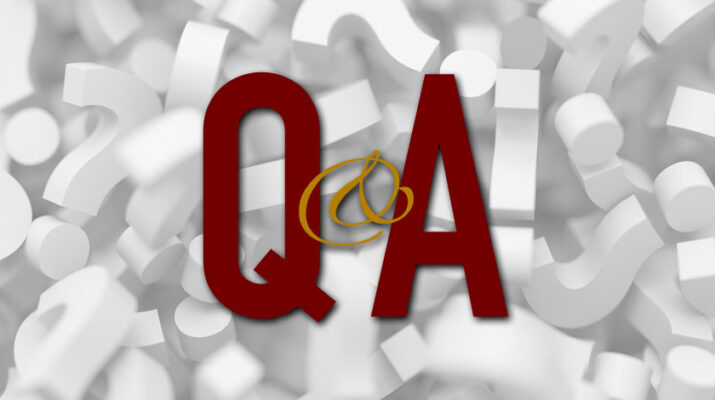Director of the Veterans Outreach Center: “If you served our country, it’s our turn to serve you”
By Mike Costanza

“If you served our country, it’s our turn to serve you.”
All hear that message whenever they call the Veterans Outreach Center, Inc., which offers a wealth of services for veterans of all ages and their families.
Executive Director Laura Stradley, a veteran of eight years in the US Army, spoke to In Good Health about the ways in which her organization aids those who once served their country in uniform. The Rochester nonprofit was created close to 50 years ago, employs about 46 people, and has a current budget of just over $2.9 million. All services are free of charge.
Q. What is the Veterans Outreach Center’s mission?
A. Our mission is to serve veterans with compassion and advocate for all who’ve worn our nation’s uniforms, so that they can rise and live life to the fullest. The reason we use that term “rise” is because it represents our core organizational values, which include respect, integrity, service and excellence.
Q. The US Department of Veterans Affairs (VA) runs a large hospital in Canandaigua and an outpatient facility here in Monroe County. Doesn’t it offer all the services that local veterans need?
A. Unfortunately, not everybody who served their country is eligible for VA health care or benefits. I think the statistics locally are that about 26% of the population is eligible for VA health care, which means that 74% of the men and women who served don’t have any services when they come home. The Veterans Outreach Center was initially created largely because of that.
Q. Were there other reasons for creating the center, as well?
A. Back in the 1970s, our Vietnam veterans were not welcomed in many veterans’ circles. Many veterans service organizations and the VA really didn’t welcome them with open arms, and they wanted a place where they could just kind of be with each other and support one another. That’s the big reason why we were created. I think we’ve been able to sustain our operations going on almost 50 years now because there is such a strong bond between those who have served.
Q. Aren’t Vietnam veterans now more accepted in veterans’ circles than they were back in the 1970s?
A. A lot of the service organizations and the VA now do very much welcome all veterans into their fold, or at least veterans who have eligibility. We don’t have any eligibility criteria that would rule somebody out from coming in. It doesn’t matter what era you served, how long you served, if you’re a combat veteran or not, if you went overseas or not, if you were on active duty a day or 10 years. Anybody who served is welcome at VOC. We fill a lot of service gaps, as well. We have programs at the Veterans Outreach Center that completely span the gamut of anything a person would need if they find themselves in tough times.
Q. Could you tell me about the VOC’s treatment programs?
A. We have licensed CASACs, which are substance abuse counselors, on site. They provide coaching and counseling for people who are recovering from substance abuse, and run group therapy sessions. Those groups are primarily at our shelter. In addition, we case-manage veterans’ cases in veterans’ treatment court. We also offer mental health treatment, chiropractic care and hydro-massage therapy.
Q. Your website mentions residential services. What are they?
A. We have emergency shelters, transitional living and a permanent supportive housing complex — it’s brand new this year. It has 33 apartments in it, and supports veterans who have low income and vets who are disabled or were homeless. We also have employment training programs, and have folks on site from the New York State Division of Veterans Affairs. They offer benefits counseling for VA benefits.
Q. Do you offer other services, as well?
A. We have a barbershop, laundry services and a partnership with RTS [Regional Transit Service]. We hand out free bus passes to all veterans. We also have a very large food pantry, and offer a lot of clothing for business attire and cold weather, also small appliances, essential items, hygiene items and pet food.
Q. How has the coronavirus pandemic changed your operations?
A. We know that veterans are at higher risk in many cases because of exposures that they had in the military. Many of them have preexisting conditions that are very dangerous for somebody who gets diagnosed with COVID. The isolation factors involved with the pandemic have also exacerbated a lot of mental health problems. Veterans who are experiencing PTSD already experience a suicide rate that’s double the national average.
Q. How are you serving vets while keeping their risk of coronavirus infection as low as possible?
A. We have actually given dozens of veterans tablets with internet connections so that they can access health providers via telehealth at home. They can also connect with loved ones and sobriety groups and do job networking. All of that can be done from home for people who did not previously have the technology, the connectivity or the means to afford that. We’ve also taken a lot of our peer support groups and made them virtual, so they don’t have to meet in person.
Q. These are difficult times for nonprofits. How is the VOC doing financially?
A. We rely in part on both state and federal dollars to fund our programs and services. In the current COVID-19 state of affairs, we are not clear whether all of those dollars will be available this year. The uncertainty of government support continues to present a challenge, and calls us to rely heavily on our corporate donors, foundations and individual investors to give generously.
Editor’s Note: For more information on the Veterans Outreach Center, go to https://veteransoutreachcenter.org or call 585-546-1081 or 866-906-VETS (8387). Those having serious difficulties can call the Veterans Crisis Line: 800-273-8255.

